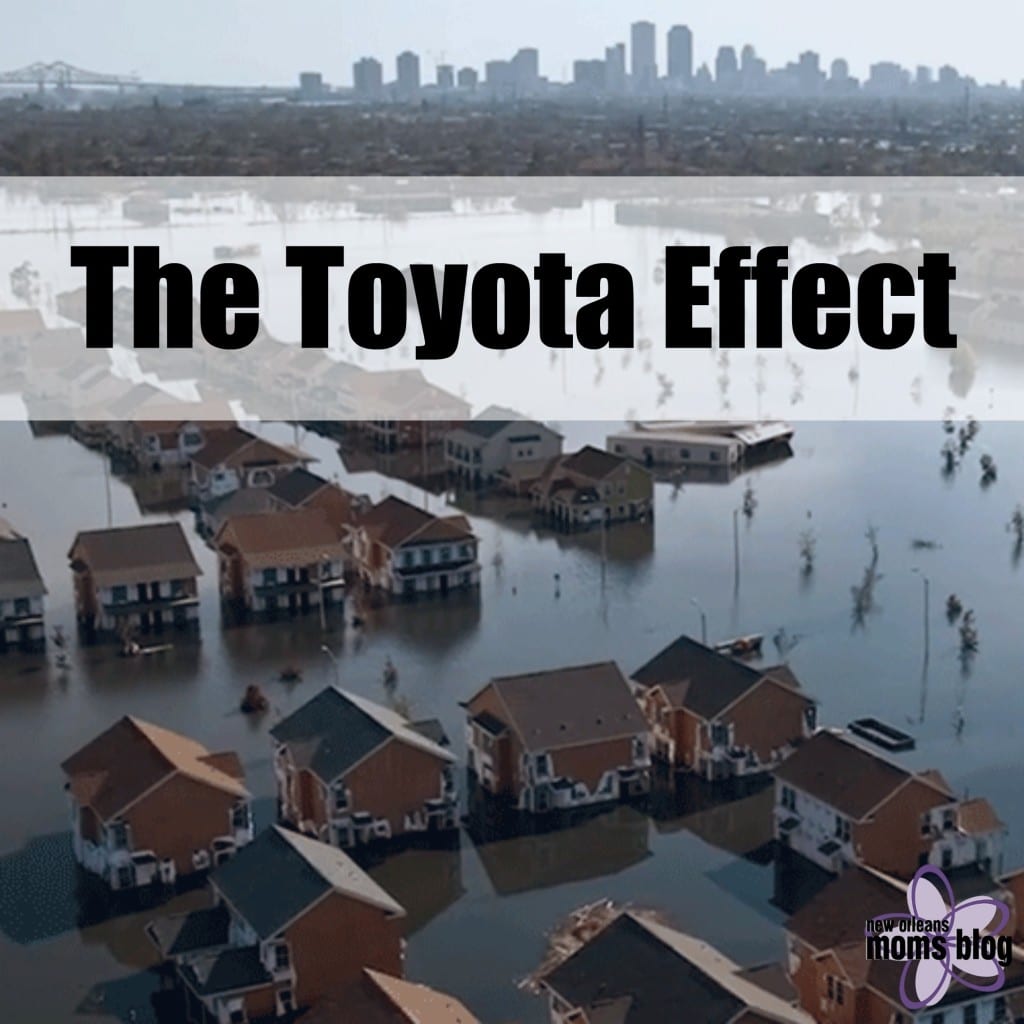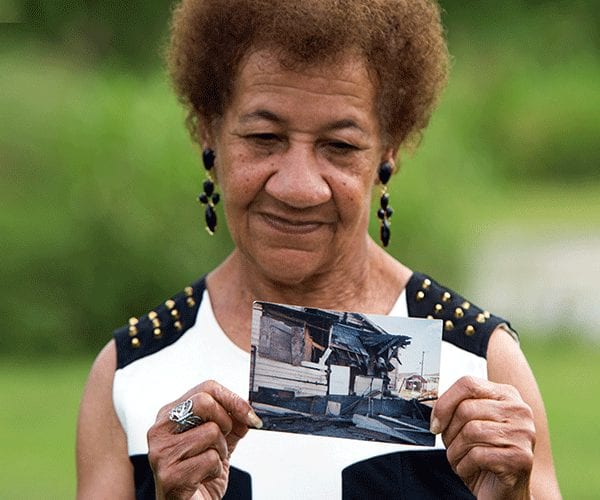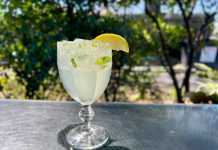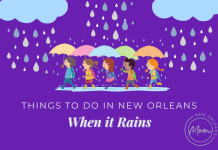Disclosure :: This post was created in partnership with our sponsor Toyota.
The Toyota Effect
When you think of the brand name Toyota, you probably think of cars. But did you know that Toyota has a greater mission? Toyota believes that organizations should have a purpose that is bigger than making money and a responsibility to have a positive impact on people, society and the environment. This really struck a chord with us because we believe the very same thing here at New Orleans Moms Blog. Toyota has brought this meaningful mission to life by sharing its unique and effective process philosophy with other manufacturers, nonprofits and community organizations to help them find more efficient ways of doing their day-to-day work.
that is bigger than making money and a responsibility to have a positive impact on people, society and the environment. This really struck a chord with us because we believe the very same thing here at New Orleans Moms Blog. Toyota has brought this meaningful mission to life by sharing its unique and effective process philosophy with other manufacturers, nonprofits and community organizations to help them find more efficient ways of doing their day-to-day work.
That sounds great, right? But how exactly does Toyota create and cultivate more efficient work? They use the the “Toyota Production System (TPS),”an integrated social-technical system that was first developed in the 1940s, in which small, continuous improvements drive high quality of work and competitiveness. Toyota shares this process because they know that when good ideas are shared, great things can happen. Isn’t that so true of life and motherhood as well? Life is just better with a village.
Toyota has now partnered with filmmakers to create a series of short films to document some of the most impactful projects that they have completed in recent years. This series, The Toyota Effect, highlights the company’s mission to share their own Toyota Production System (TPS) for the betterment of people’s lives and organizations through mini-documentary style films.
Coming Home : A Film Based on New Orleans’ St. Bernard Project
In the film “Coming Home,” directed by Academy-Award-winning filmmaker Ross Kauffman, Toyota focuses on the local non-profit the St. Bernard Project and helps them go from building a home in 116 days down to 61 days, getting more New Orleanians back in homes after the devastation of Hurricane Katrina. How neat is that?
We had the opportunity to ask Zack Rosenburg and Liz McCartney, the foundersof the St. Bernard Project some post-film follow-up questions to learn more about their work here in New Orleans.
So just what IS The Toyota Effect?
Toyota shares its Production System with different partners to help them find better ways of doing things. By working with Toyota to make small changes to their day-to-day operations, partners are able to have a greater impact and, in many cases, help more people in need. It’s a unique philosophy that brings members of an organization together to increase both production and camaraderie among participants.
What has been the most challenging part about implementing the Toyota Production System (TPS) into The St. Bernard Project (SBP)?
The hardest part for me, personally, about implementing TPS is the need to learn to ask questions, and not offer solutions. One component of TPS is the firm understanding that the best ideas come from the people who do the work. Toyota’s trainers are experts in asking thoughtful questions, and not being prescriptive. This process, when done well, leads to better solutions that are firmly adopted by the team.
What made the decline in results that you spoke of in the video happen? Was there an “a-ha moment” to realize a change was needed in the organization?
 The biggest change that we made was a change in our culture. We went from being “the good guys” who achieved a lot, to an organization with an ethos of constructive discontent; talking about problems became part of our DNA and identity. To improve, you have to talk about what doesn’t work, and our previous identity of being successful held us back from talking about problems.
The biggest change that we made was a change in our culture. We went from being “the good guys” who achieved a lot, to an organization with an ethos of constructive discontent; talking about problems became part of our DNA and identity. To improve, you have to talk about what doesn’t work, and our previous identity of being successful held us back from talking about problems.
How do you think the Toyota Production System will impact results in the next year?
We now utilize TPS across the organization, and through each affiliate. SBP is now in the process of building our New Orleans and national headquarters, which includes a construction training center for at-risk young people and veterans. TPS and support from Toyota will help SBP build the facility in a way that reduces muda, or waste – and that, through its layout, increases efficiency.
How can readers contribute to the success of the organization after The Toyota Production System? Time? Supplies? Donations?
Our biggest needs are funding and volunteers. In each community where we work (New Orleans, Texas, New Jersey and New York) we have clients on our waiting list whose homes we could rebuild with funding for building supplies. The single biggest need we have is funds for building supplies. To be certain, we can always use more volunteers, too. We recently estimated that, with the same number of volunteers, but full funding for building supplies over the last 9 years, we would have rebuilt 250 more homes in New Orleans.
For us, building houses is like a 4 leg stool. We have clients, we have staff, and most of the time we have ample volunteers. What we lack most often is funding for supplies in a manner that is consistent with client need, staff capacity and volunteer participation.
What did Toyota hope to achieve by making these films and highlighting these partnerships?
“The organizations and incredible people whose lives are being changed by this work are the stars of these three films,” said Toyota’s Marjorie Schussel, Director, Integrated Brand Communications. “And by working with these talented filmmakers, who each approached this project through their own unique lens, these stories are now being told more powerfully and authentically than we ever could on our own.”
“Our mission at Convergence was to highlight projects that live at the intersection of film and media,” says Matthew Bolish, Programmer, New York Film Festival Convergence. “We were excited to present The Toyota Effect series because it exemplifies how brands and high-profile film directors are creating new modes of storytelling for digital-first audiences.”
Want to learn more? Check out “Coming Home” at www.TheToyotaEffect.com and learn how you can get involved locally at www.stbernardproject.org
More about our sponsor: Toyota established operations in the United States in 1957 and currently operates 10 manufacturing plants. Toyota directly employs over 31,000 in the U.S. and its investment here is currently valued at more than $23 billion, including sales and manufacturing operations, research and development, financial services and design. Toyota is committed to being a good corporate citizen in the communities where it does business and believes in supporting programs with long-term sustainable results. Toyota supports numerous organizations across the country, focusing on education, the environment and safety. Since 1991, Toyota has contributed nearly 700 million dollars to philanthropic programs in the U.S.
















